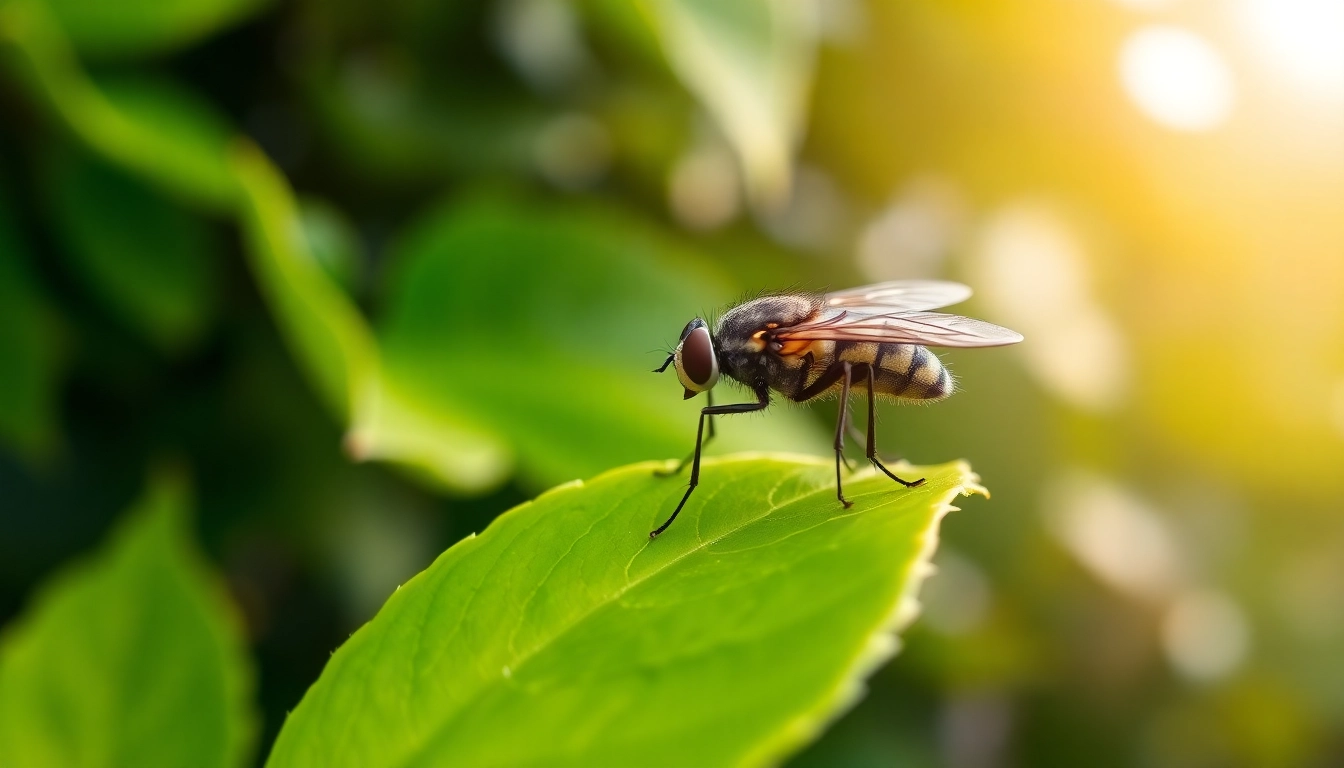The Biological Processes of Flies
Understanding Fly Anatomy
Flies, particularly those in the order Diptera, possess a unique anatomy that supports their survival and reproduction. Their external structure includes a head equipped with complex eyes that provide a wide field of vision, aiding in the detection of predators. Flies also have mouthparts adapted for feeding primarily on liquids, leveraging a proboscis that can extend to access nutrients efficiently. Understanding this anatomical framework is crucial in addressing questions about physiological processes, including waste elimination and the much-debated topic of whether do flies pee.
Metabolism and Excretion
The metabolic processes in flies are adapted to their high-energy lifestyle, characterized by rapid movement and reproduction. Flies convert food into energy through metabolic pathways that involve breaking down sugars and fats. During this process, waste products accumulate in their bodies. Unlike mammals, flies have an excretory system that is less complex, utilizing specialized Malpighian tubules which function similarly to kidneys. These tubules absorb excess water, salts, and nitrogenous waste from the hemolymph (the fly’s equivalent of blood) and excrete them as a semi-solid mass, minimizing water loss, a crucial adaptation in their often arid environments.
The Role of Waste Management in Flies
Effective waste management is vital for flies, as it helps maintain homeostasis and promotes survival in diverse environments. The combination of solid and liquid excreta facilitates nutrient recycling in ecosystems, turning waste back into usable resources. By utilizing their metabolic waste as fertilizer, flies indirectly enhance soil health, showcasing their role as vital components in nutrient cycling. Understanding this waste management system offers insights into ecological balance and the important role insects play in sustaining environmental health.
Do Flies Pee? A Scientific Approach
What Flies Excrete: Urine vs. Other Waste
One of the foremost questions regarding flies concerns the nature of their excretion – do flies pee? Unlike mammals, flies do not produce urine in the conventional sense. Instead, their excretory system discharges a mixture of solid and liquid waste, largely consisting of uric acid, which is less toxic and conserves water. The Malpighian tubules collect this waste from the hemolymph and expel it into the digestive tract, where it combines with fecal matter. This efficient excretion process ensures that flies conserve water while eliminating waste, thereby fitting their needs as small terrestrial organisms.
Comparative Analysis with Other Insects
When comparing the excretion processes of flies to other insects, distinctions emerge regarding their adaptations to various environments. Some insects, like grasshoppers, produce more liquid waste because they live in habitats with greater moisture availability. Conversely, desert-dwelling species have evolved to excrete primarily solid waste to minimize water loss. This comparative analysis highlights how different ecological pressures shape the physiological adaptations of insects, including whether they truly ‘pee’ in the traditional sense or employ alternative mechanisms for waste elimination.
Common Misconceptions Behind Fly Urination
There are many misconceptions regarding whether flies urinate. Popular belief tends to anthropomorphize insect behavior, assuming flies excrete waste similarly to mammals. However, the scientific community clarifies that the process is markedly different. Flies primarily excrete waste in a form that combines solid and liquid, retracting notions of urination. Addressing these misconceptions is important for general awareness about insect biology and for fostering a deeper understanding of the unique adaptive strategies of these organisms.
Impact of Environmental Factors on Fly Behavior
Temperature and Humidity Effects
Flies exhibit significant changes in behavior based on environmental variables such as temperature and humidity. High temperatures can accelerate metabolic rates, leading to increased food consumption and consequently greater waste production. In contrast, extreme humidity may influence the fly’s capacity for water regulation through its excretory mechanisms, impacting how and when they eliminate waste. For instance, higher humidity levels might facilitate liquid excretion, altering their waste management strategies.
Habitat Influences on Excretion Patterns
Different habitats exert varying pressures on flies, prompting adaptations in their waste elimination patterns. Flies that thrive in arid environments tend to excrete more solid waste to conserve water, while those in humid environments may exhibit more liquid-like waste excretion. This adaptability ensures the survival of flies across diverse ecological domains, showcasing their remarkable physiological and behavioral diversity.
The Fly Lifecycle and its Role in Waste Management
Understanding the lifecycle of a fly is critical for recognizing how their excretion patterns evolve over time. Flies undergo complete metamorphosis, including stages as eggs, larvae, pupae, and adults. The larval stage is particularly fascinating, as larvae are often associated with decomposition and waste recycling, effectively breaking down organic material and enriching their surroundings. This role as decomposers links directly to the flies’ waste output, signifying their broader ecological impact by supporting habitats through nutrient circulation.
Human Interaction and Perception of Flies
Flies in Agriculture: Benefits and Drawbacks
Flies serve a dual role in agriculture, both as pests and beneficial insects. In certain contexts, flies contribute to pollination and act as decomposers, aiding in composting and nutrient recycling. However, they can also spread diseases, leading to crop damage and health concerns for livestock and humans. Understanding their role in agriculture prompts perspectives on integrated pest management, balancing benefits and disadvantages through sustainable practices that preserve ecological integrity.
How Flies Contribute to Ecosystem Health
In ecosystems, flies are integral players in decomposition and nutrient cycling. By breaking down organic matter, they facilitate the return of nutrients to the soil, which supports plant growth and the overall health of the ecosystem. Furthermore, as they serve as food sources for various predatory animals, they contribute to the food web, underscoring their essential role in ecological balance. Studying this contribution enhances our understanding of biodiversity and emphasizes the importance of preserving insect populations.
Misinformation in Popular Culture
Flies have often been misrepresented in popular culture, leading to stigmatization and misunderstanding. From horror movies to hygiene myths, the perception of flies tends to focus on their role as disease carriers, overshadowing their ecological importance. Addressing these misconceptions is crucial for public education, fostering a more nuanced understanding of insects and their roles in various ecosystems. This shift in perception can improve our interactions with these organisms and support conservation efforts.
Future Research Directions and Questions
Unanswered Questions in Entomology
The field of entomology continues to grapple with numerous unanswered questions regarding insect biology, particularly concerning excretion and waste management in flies. Research directed toward the specifics of fly physiology could offer insights into their role in biodegradation and potential applications in waste management and agriculture. Exploring unknown facets of fly biology can drive innovative approaches within ecological research and serve practical purposes within human contexts.
Technological Advances in Fly Research
Emerging technologies such as genomic sequencing and imaging techniques hold potential for unlocking new understanding about flies and their biological processes. These innovations allow researchers to explore gene functions related to metabolism and excretion, offering opportunities to uncover mechanisms that govern their waste management. By harnessing these technical advancements, future studies could reveal sophisticated adaptations that flies employ in various environmental contexts.
The Importance of Education in Understanding Insects
Education plays a pivotal role in demystifying the biology of flies and fostering understanding of their ecosystems. Incorporating entomological studies into educational curricula can help drive interest in insect science, emphasizing their ecological roles and the significance of biodiversity. By improving awareness, we can build public appreciation for these vital organisms and encourage stewardship towards ecological preservation efforts that benefit both insects and human society.



